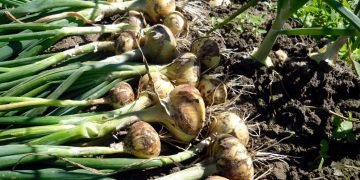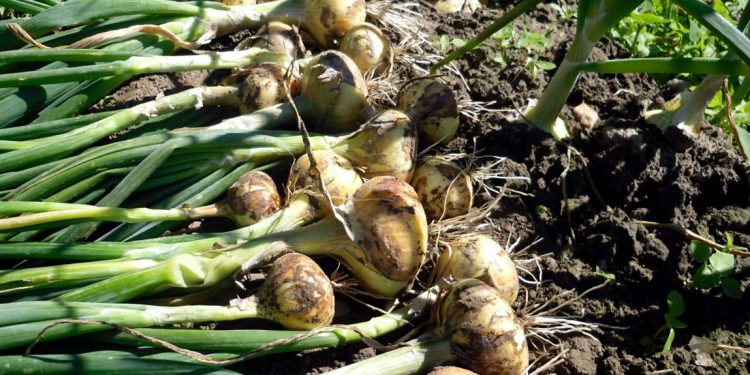#AgriculturalInnovation #OnionHarvesting #INTA #UniversityofLaPlata #SustainableFarming #EnvironmentalImpact #RíoColorado #AgriculturalTechnology
In the agricultural region of Río Colorado in southern Buenos Aires, a significant development has taken place to enhance the daily tasks of onion harvesters. The INTA Ascasubi, in collaboration with industrial designers from the University of La Plata, has introduced machinery and improvements designed to mitigate the impact of adverse weather conditions on workers. The aim is to minimize health risks caused by prolonged exposure to the sun, wind, and cold, as well as addressing issues related to muscular pain, joint problems, and eye irritations arising from contact with onion acids.
The Río Colorado valley in Buenos Aires is renowned for its agricultural productivity and is a hub for the manufacturing of agricultural machinery. The INTA Ascasubi, specializing in machinery development, highlights that the region possesses the necessary technological capabilities for the production of the designed stations. Juan Pablo D´Amico, a machinery specialist at INTA Ascasubi, explained that their medium-term plan is to promote the growth of local suppliers and associated equipment such as big-bag sacks and chemical toilets, as these technologies are readily available within the industrial network of the area.
The primary objective of this development is to protect workers from the hazards they face during onion harvesting. By utilizing innovative technology, the project aims to improve working conditions, prevent health issues caused by harsh weather, and reorganize post-harvest activities. Moreover, these advancements come with agronomic benefits for soil usage. The technology contributes to reducing environmental impact by preventing bare soils in a region already affected by strong winds. Additionally, it facilitates waste concentration at the field’s edges or roadsides, enables composting, and reduces soil compaction.
The optimized onion harvesting technology brings significant benefits to the agricultural community and the environment. Workers engaged in onion collection will experience improved conditions, ensuring their well-being and reducing health risks related to weather exposure and handling onions. By reducing soil erosion and compaction, the technology contributes to better land management practices, which, in turn, positively impacts the region’s ecosystem.
As the technology gains traction and more local suppliers get involved in its production, the agricultural sector in the Río Colorado valley is likely to witness economic growth and increased employment opportunities. Moreover, the adoption of environmentally friendly practices will contribute to the overall sustainability of the region’s agricultural activities.
The collaborative efforts of INTA Ascasubi and the University of La Plata have resulted in a significant development in the agricultural sector of Río Colorado. The optimization of onion harvesting technology not only ensures better working conditions for laborers but also demonstrates a commitment to environmentally responsible practices. As this innovation continues to evolve, it has the potential to transform the entire region’s agricultural landscape, making it a model for sustainable farming practices.































